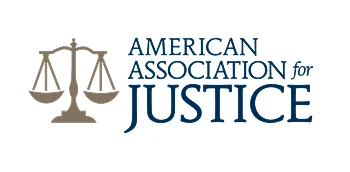Are Brain Injuries Linked to Dementia?
Injuries to the head are one of the most common types of personal injuries. They are also one of the most potentially severe. Even a minor bump or blow can leave you with a traumatic brain injury (TBI) that can impact your abilities both now and in the years to come. Recent studies have indicated what medical providers and the families of victims have long suspected, which is that brain injuries can lead to an increased risk of developing dementia or Alzheimer’s disease at some point in the future.
The Link Between Brain Injury and Dementia
Brain injuries often occur as the result of slips and falls, or due to car, bike, and pedestrian accidents. They can happen at work or while engaged in sports and recreational activities. The Alzheimer’s Foundation states that even a seemingly minor bump, blow, or jolt to the head can result in disruption of the neural pathways in the brain. This can impact cognitive health in two important ways:
- Direct and immediate effects : These include symptoms such as loss of memory, difficulty in concentration, mood disorders, and problems with balance, vision, or hearing.
- Long term impacts : In additional to developmental delays and changes in personality, there is an increased risk for developing Alzheimer’s or other types of dementia years after an actual head injury occurs.
In studies over the course of 2017, researchers for the professional journal The Lancet Psychiatry conducted an exhaustive review of more than three million patient records involving people with brain injuries. What they found is that patients with brain injuries are more than 24 times more likely than the average person to eventually develop dementia.
Dealing with the Long Term Effects of Brain Injury
The National Institutes of Health (NIH) reports that the risk of suffering permanent and long term damage, including dementia, as the result of brain injuries increases based on the severity of the blow and the number of previous head injuries that have occurred. This decline in cognitive abilities is common among football players, fighters, and others who suffered repeated head injuries; it is often referred to as post-concussion syndrome.
If you or someone you love has been involved in an accident that resulted in a head injury, it is important to be aware of these risks. Any accident claim or settlement should include a complete doctors report regarding the injury and the prognosis for future recovery. This is to ensure that you get compensation for your medical expenses and any disabilities you suffer due to your injuries, both now and in the future.
Let Our Nashville Brain Injury Attorneys Help You
When dealing with the potential long term effects of brain injuries, you need someone with experience in these matters on your side, acting as a strong legal advocate on your behalf. Reach out and contact Bednarz Law today and request a consultation to see how our Nashville brain injury attorney can help you.
Accidents During the Colder Months in Tennessee
Stay safe when driving this winter—call our lawyer if you are in a crash. When the weather cools in Tennessee,...
Read MoreIf My Uber Ride is in an Accident, Who Pays for my Injuries?
Everywhere you go in Nashville, you can notice cars with Uber or other rideshare stickers. Uber drivers provide a convenient...
Read MoreWinter Weather and Car Accidents
Driving during winter weather conditions is hardly anyone’s idea of a good time. The winter months bring heavy snowfalls, hazardous...
Read More






